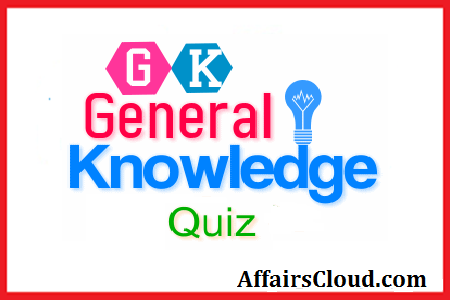Hello Aspirants. Welcome to Online General Knowledge section in Affairs cloud, which is important for all the competitive exams. We have created Some questions related to Indian GK(Indian Polity) !!!
- ‘Parliamentary democracy means one individual and one vote’ was said by
1.Gopal Krishna Gokhale
2.Bal Gangadhar Tilak
3.Sardar Patel
4.Mahatma Gandhi
5.None of theseAnswer – 3.Sardar Patel
Explanation :
Parliamentary democracy means one individual and one vote’ was said by Sardar Patel - ……………….. ensures the grass root democracy in India
1.Chief Minister
2.Councilor
3.President
4.Panchayati Raj
5.None of theseAnswer – 4.Panchayati Raj
Explanation :
Grass-root Democracy in India: Status of the Panchayati Raj System - The candidate should secure ……………. to win the Election of President of India 1.More than 50% and the majority of the total votes polled
2.75% of the votes polled
3.50% of the votes polled
4.Majority number of votes polled
5.None of theseAnswer – 1.More than 50% and the majority of the total votes polled
Explanation :
The candidate should secure more than 50% and the majority of the total votes polled to win the Election of President of India - Which of the following is not a Fundamental Rights ?
1.Right against exploitation
2.Equal pay for Equal work
3.Right to freedom of religion
4.Right to freedom
5.None of theseAnswer – 2.Equal pay for Equal work
Explanation :
Equal pay for equal work is the concept of labor rights that individuals doing the same work should receive the same remuneration. - Which of the following is the larger system ?
1.Political System
2.Economic System
3.National System
4.International System
5.None of theseAnswer – 1.Political System
Explanation :
A political system is a system of politics and government. It is usually compared to the legal system, economic system, cultural system, and other social systems. - India has …………………… system
1.Plural Executive
2.Quasi-Presidential
3.Presidential
4.Parliamentary
5.None of theseAnswer – 4.Parliamentary
India adopted the Parliamentary form of democracy in the year 1947 since India has been familiar with its working during the times of British - The Vacancy of the office of the President must be filled within how many months ?
1.3 months
2.2 months
3.6 months
4.1 months
5.None of theseAnswer – 3.6 months
Explanation :
If any vacancy arises out of death/ resignation / removal in the office of the President it must be filled within 6 months. - As per Article 12 – 35, the fundamental rights are ……………….
1.Feasible
2.Can be amended
3.Rejectable
4.Rigid
5.None of theseAnswer – 2.Can be amended
Explanation :
Fundamental Rights are mentioned in Part III covering Articles 12 to 35.However, as per Article 13(4), nothing in this article shall apply to any amendment - The Fundamental duties are enshrined in …………………
1.Artilce 51A
2.Artilce 54A
3.Article 52
4.Artilce 51
5.None of theseAnswer – 1.Artilce 51A
Explanation :
Fundamental Duties of the citizens of India mentioned in Article 51A of the Indian Constitution. By the 42nd Amendment of the Constitution, adopted in 1976, Fundamental Duties of the citizens have also been enumerated. - The President rule can be imposed in a state at a first instance for
1.3 months
2.2 months
3.6 months
4.4 months
5.None of theseAnswer – 3.6 months
Explanation :
The President rule can be imposed in a state at a first instance for 6 months
AffairsCloud Recommends Oliveboard Mock Test
AffairsCloud Ebook - Support Us to Grow
Govt Jobs by Category
Bank Jobs Notification



